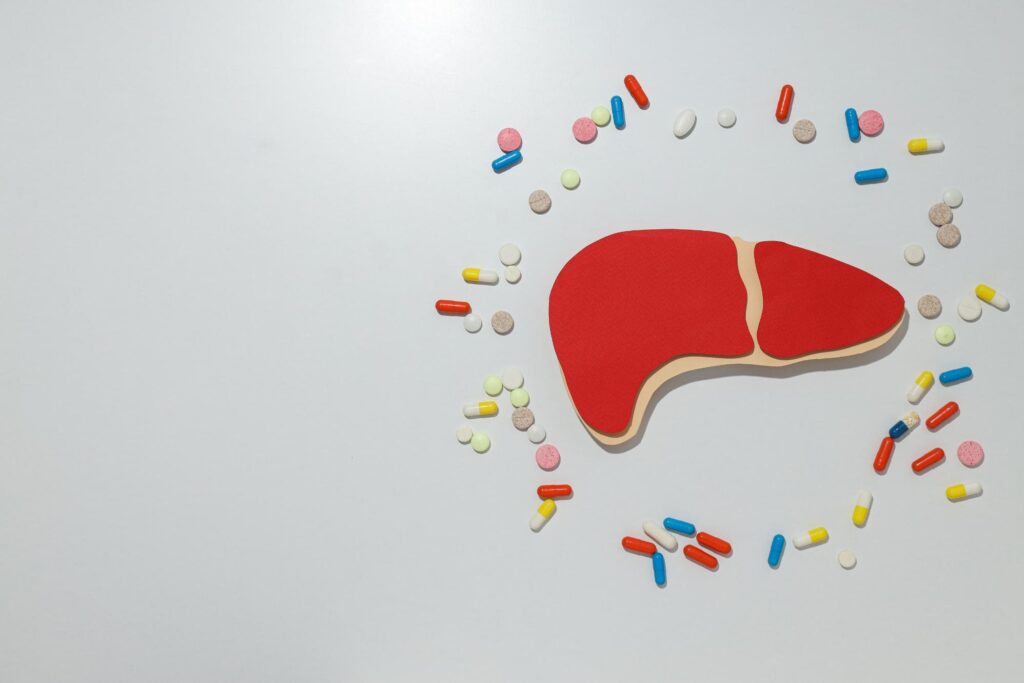Comprehensive Guide to Integrative Therapy for Hepatocellular Carcinoma
Combine standard treatment with nutrition, exercise, psychology and natural therapies to comprehensively improve quality of life and treatment tolerance
Free cancer support
Clinical Challenges of HCC
Hepatocellular carcinoma (HCC) accounts for 70–90% of primary liver cancers worldwide, with more than 900,000 new cases diagnosed annually. It is the third leading cause of cancer-related death globally (Ruiz-Margáin et al., 2021). Most patients also present with cirrhosis or chronic hepatitis, complicating treatment strategies. Even with surgery or standard therapies, the five-year survival rate remains low. Patients often experience malnutrition, reduced physical capacity, and psychological distress.
Therefore, relying solely on tumor-directed therapies is insufficient to improve overall prognosis. Integrative approaches that address physiology, nutrition, psychology, and quality of life are essential.

Limitations of Standard Therapies
Current HCC treatments include:
- Surgical resection and liver transplantation: Suitable for early-stage patients but associated with high recurrence rates.
- Local ablation (radiofrequency, microwave) and transarterial chemoembolization (TACE): Effective for intermediate-stage disease but with notable adverse effects.
- Systemic therapies (targeted and immunotherapies, e.g., sorafenib, lenvatinib, PD-1 inhibitors): Can prolong survival but are often accompanied by hand-foot syndrome, fatigue, and gastrointestinal toxicity.
While these treatments control tumor progression, they do not adequately address malnutrition, cachexia, and psychological stress—the “invisible issues.”
The Role of Integrative Therapy
Integrative oncology emphasizes:
Combining standard treatment with supportive care
In addition to standard treatment, we combine nutrition, exercise, psychology and natural therapies
Patient-centered
Patient-centered, improving treatment tolerance, quality of life and long-term prognosis
UCSF and MD Anderson have implemented integrated oncology
International cancer centers such as the UCSF Osher Center and MD Anderson have established a complete integrative oncology model ([Deng et al., 2021]).
Nutritional Therapy
The Burden of Malnutrition
Between 50–80% of HCC patients experience malnutrition, which directly correlates with higher infection rates, treatment failure, and mortality (Ruiz-Margáin et al., 2021). Nutritional support should therefore be a core component of therapy.
Nutritional Strategies
- High-protein, high-calorie diet:2–1.5 g/kg protein daily; energy 30–35 kcal/kg (Arends et al., 2021).
- Branched-chain amino acids (BCAA): Improve muscle mass, liver function, and treatment response.
- Coffee consumption: Epidemiological studies suggest coffee reduces HCC risk and recurrence (Nutrition Reviews, 2025).
- Liver-protective foods: Fiber-rich and antioxidant-rich foods (green tea, berries), omega-3 sources (fatty fish, flaxseed).
- Foods to avoid: Aflatoxin-contaminated products, excessive red meat, and alcohol (Medical News Today, 2024).
Special Considerations
- Patients with cirrhosis: Avoid high-salt diets to reduce ascites; supplement zinc and vitamin D.
- Patients undergoing TACE or immunotherapy: Nutritional support reduces treatment-related toxicities.
Exercise Interventions
Exercise enhances both physical and psychological outcomes in HCC patients:
- Aerobic training (walking, swimming): Improves cardiopulmonary function.
- Resistance training: Prevents sarcopenia and preserves muscle mass.
- Prehabilitation (exercise + nutrition before surgery/intervention): Shortens hospital stays and reduces complications (Minnella et al., 2018).

Mind-Body Therapies
Psychological distress and anxiety worsen liver disease progression. Integrative mind-body interventions are effective in improving outcomes:
Mindfulness meditation and yoga
Reduce anxiety and improve sleep (Greenlee et al., 2017).
Music therapy and aromatherapy
Alleviate fatigue and pain.
Psychological counseling and group therapy
Decrease isolation and improve adherence to treatment.
Supplements and Natural Therapies
Commonly Used Supplements
- BCAA: Clinically proven to improve nutrition and extend survival (Ruiz-Margáin et al., 2021).
- Vitamin D: Low levels correlate with poor prognosis; supplementation may be beneficial.
- Herbal medicine: Some herbs (e.g., silymarin from milk thistle) have hepatoprotective and antioxidant potential, but interactions with targeted or immunotherapies must be considered.
Warnings
Natural products are not inherently safe. Patients should avoid unproven remedies and only use supplements under professional medical supervision.

Multidisciplinary Team Model
Leading cancer centers such as MD Anderson and UCSF Osher Center employ multidisciplinary models including:
- Oncologists: Leading standard treatment.
- Nutritionists: Personalized dietary strategies.
- Physical therapists: Tailored exercise regimens.
- Psychologists: Managing anxiety and depression.
- Integrative physicians: Coordinating natural and complementary therapies.
Such models improve quality of life and adherence to treatment (Deng et al., 2021).

Conclusion
Hepatocellular carcinoma is a highly challenging cancer, with patients facing tumor burden, impaired liver function, malnutrition, and psychological stress. Integrative therapy provides a holistic medical model, combining nutrition, exercise, psychological support, and natural therapies alongside standard treatments. This approach not only improves quality of life but may also extend survival. In the future, integrative therapy will play an increasingly vital role in HCC management.

Contact our professional team now
References
- Arends, J., et al. (2021). ESPEN practical guideline: Clinical nutrition in cancer. Clinical Nutrition, 40.
- Deng, G., et al. (2021). Integrative oncology practice at academic cancer centers. CA: A Cancer Journal for Clinicians, 71(2), 120–138.
- Greenlee, H., et al. (2017). Clinical practice guidelines on integrative therapies. Journal of Clinical Oncology, 35(18), 1962–1981.
- Medical News Today. (2024). Liver cancer diet: foods to eat and avoid.
- Minnella, E. M., et al. (2018). Prehabilitation before surgery. JAMA Surgery, 153(5), 421–429.
- Nutrition Reviews. (2025). Dietary factors reducing liver cancer risk.
- Ruiz-Margáin, A., Román-Calleja, B. M., et al. (2021). Nutritional therapy for hepatocellular carcinoma. World J Gastrointest Oncol, 13(10), 1440-1452.
- UCSF Osher Center. (n.d.). Cancer and Nutrition resources.
